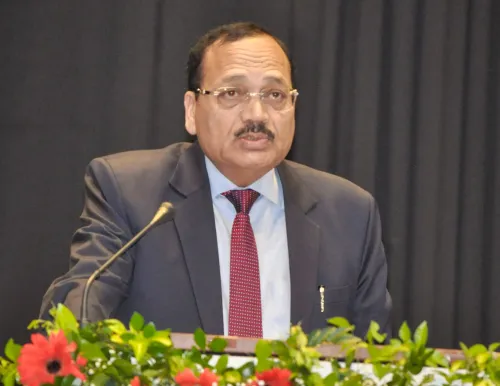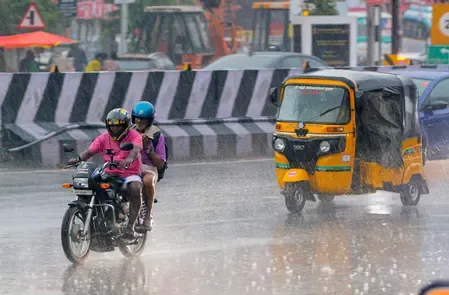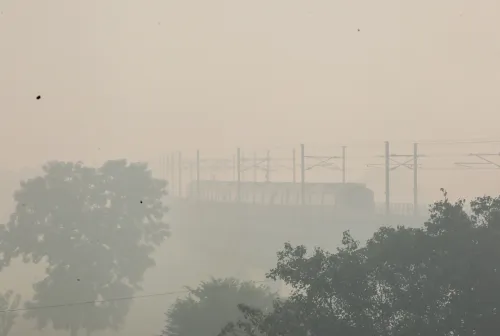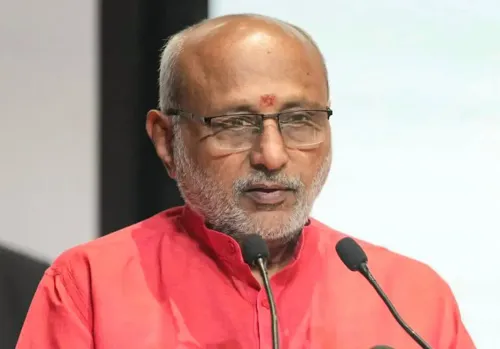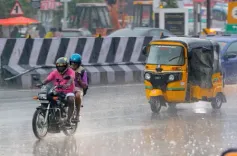Is Pakistan’s unauthorised grip on PoK facing global scrutiny amid human rights abuses?
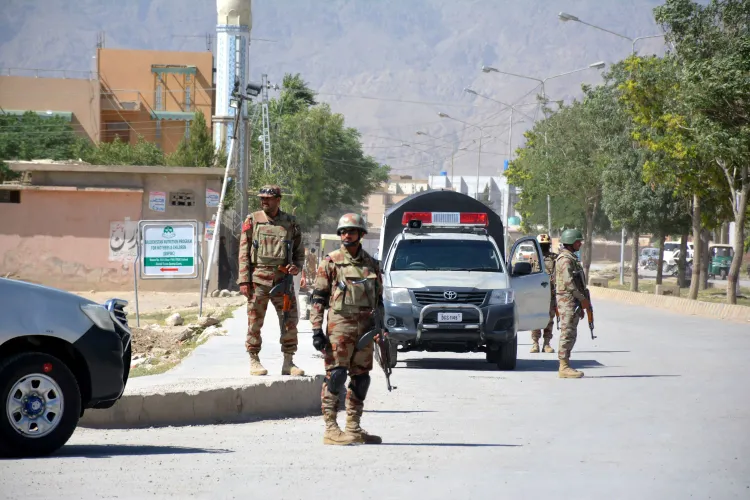
Synopsis
Key Takeaways
- Human Rights Violations: Systematic abuses reported in the region.
- Deforestation Crisis: Over 30% forest cover lost in two decades.
- Military Control: Increasing appropriation of land under military guise.
- Economic Disparity: Local communities lack benefits from tourism.
- Call for Reform: Urgent need for constitutional recognition and rights protections.
New Delhi, Aug 4 (NationPress) The reports of human rights abuses in Pakistan-occupied Kashmir are not merely isolated occurrences; they reflect a wider, troubling trend.
The United Nations Office of the High Commissioner for Human Rights (OHCHR) has documented serious allegations of enforced disappearances, custodial torture, and restrictions on freedom of expression in Gilgit Baltistan (GB) in its 2018 and 2019 reports.
Pakistan's unauthorised control over the region is frequently reported in local media, highlighting instances of gender-based violence and the suppression of minority voices, particularly in areas with a heavy military presence.
The Asian Human Rights Commission (2021) pointed out the lack of legal recourse for victims, emphasizing how military courts often circumvent civilian legal systems. The ecological impact of Islamabad's development strategies has been devastating.
The Pakistan Forest Institute (2020) revealed that GB has seen a loss of over 30 percent of its forest cover in the last two decades due to rampant logging and infrastructure development.
This deforestation has heightened the occurrence and severity of flash floods, as noted by WWF Pakistan and ReliefWeb after the 2022 monsoon season.
In 2017, significant protests erupted in Muzaffarabad and Neelum Valley against illegal logging, allegedly supported by local officials and military-affiliated contractors. Coverage from major newspapers indicated that despite public outcry, no meaningful actions were taken to stop deforestation, raising serious concerns about institutional complicity.
While the region generates substantial revenue through tourism and natural resources, local communities are not reaping the benefits. The Pakistan Tourism Development Corporation (PTDC) reported that GB attracted over 1.2 million tourists in 2023, yet most of the profits are directed to military-run businesses or agencies based in Islamabad.
Military land appropriation has escalated, with the International Commission of Jurists (2022) indicating that thousands of acres in Skardu and Hunza have been transferred to the Pakistan Army under the guise of strategic development.
Local protests, reported by various television channels and newspapers, have often been met with arrests and media blackouts. Basic commodity subsidies remain elusive.
According to a leading business daily, residents of GB pay more for wheat and electricity than those in Punjab or Sindh, despite the region's challenging terrain and inadequate infrastructure. This economic inequality has sparked resentment and demands for provincial status, which Islamabad continues to ignore.
Tourism, which was once a community-centered enterprise, is now largely dominated by military-linked corporations. Investigative journalism has exposed how hotels, transport services, and trekking permits are controlled by entities associated with the Pakistan Army.
Local entrepreneurs have expressed frustration at being pushed out of the market despite years of investment and expertise.
Pakistan-occupied Kashmir stands at a pivotal moment. While its natural beauty and strategic significance are clear, the region’s populace continues to endure suffering under a regime that prioritizes control over accountability.
As international focus remains on the Line of Control, the lived experiences of those in PoJK and GB urgently require attention—from constitutional recognition and human rights protections to ecological restoration and economic justice. Without significant reforms, the region risks evolving into not just a geopolitical flashpoint, but a slow-motion humanitarian and environmental disaster.

